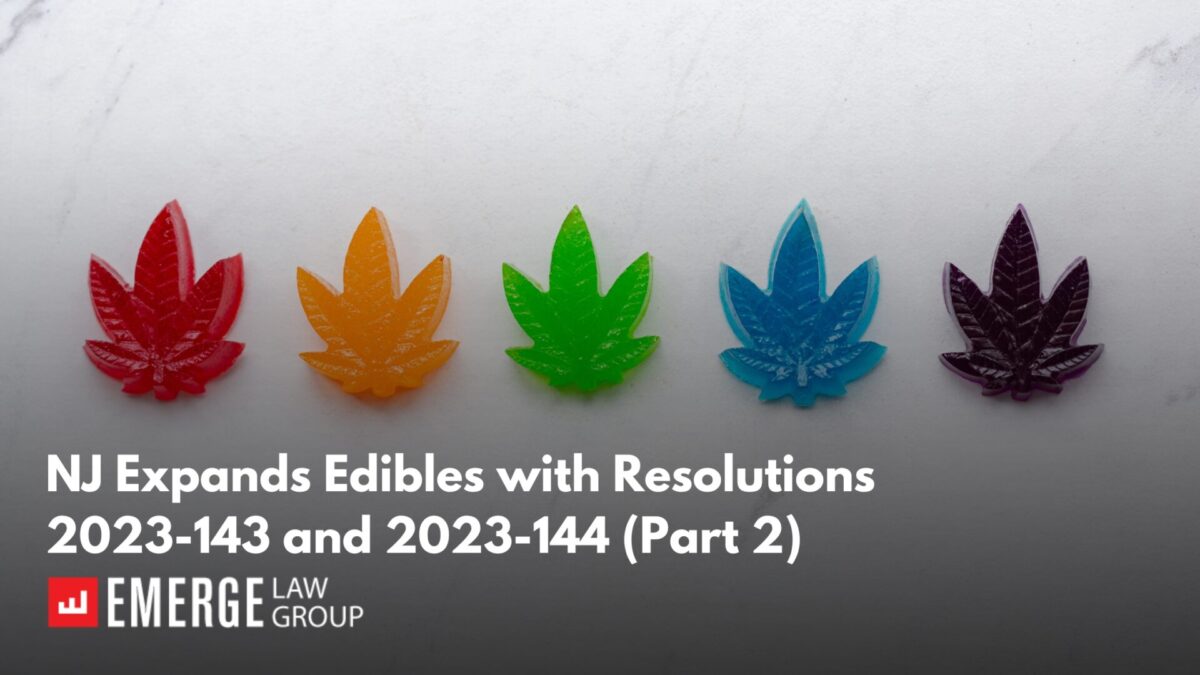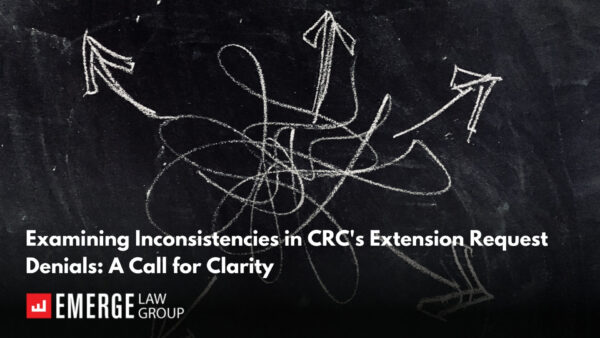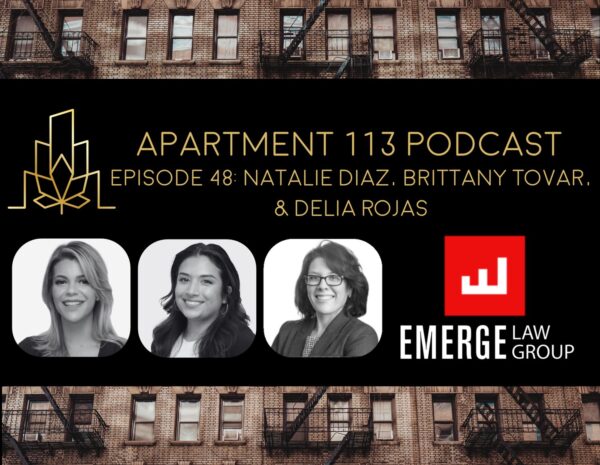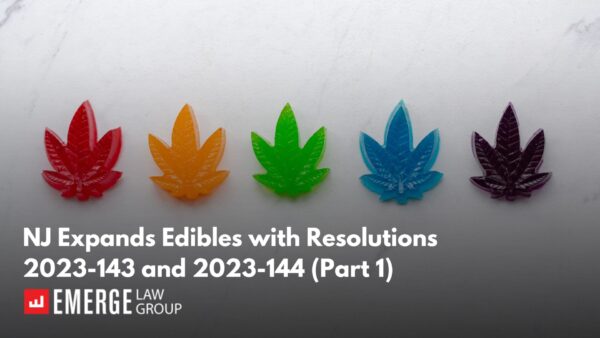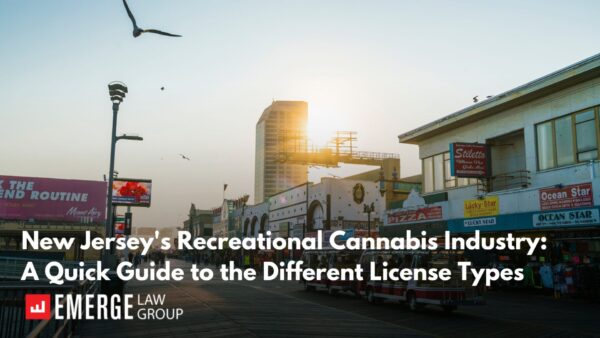Author: Emerge attorney Natalie Diaz
Be sure to check out Part 1 to see what the new rules allow.
What Types of Edibles are Not Permitted?
The Resolution sets out a clear framework for what’s allowed and what’s not when it comes to edibles. We are all about good vibes here, not harmful substances. Here’s a breakdown of the key points you need to know:
1. No Alcohol Allowed! When it comes to edibles, it cannot mimic or have any alcohol greater than 0.5% ABV, as specified by N.J.S.A. 33:1-1. So, if you’ve been embracing the kombucha trend, nurturing your SCOBY from the COVID-19 pandemic, and your brew boasts just a tiny hint of alcohol (0.5% or less) you’re in the clear! However, to play it safe and show some thoughtfulness, consider slapping a label on your concoction. This label would kindly inform consumers about those minuscule traces of naturally occurring alcohol, courtesy of the funky fermentation process. By doing so, you ensure everyone’s in the loop, especially those who abstain from alcohol due to personal reasons or religious beliefs. Let’s continue enjoying the good times with responsibility in mind!
2. Tobacco and Nicotine-Free Edibles should not contain any traces of tobacco or nicotine. This is a straightforward rule to keep these harmful substances out of the equation.
3. No Cooking or Baking Required Edibles should not require cooking or baking by the consumer. Edibles should be ready to enjoy without any cooking or baking on your part. After all, who has the time for that? We want our treats, and we want them now!
4. No Edible Biohazard Consumers should not be required to store edibles in sterile conditions. Sterile storage is for those high-tech labs or medical drama scenarios, not your delicious munchies.
5. No Controlled Dangerous Substances Edibles should not contain any controlled dangerous substances, as defined in N.J.S.A. 24:2I-2. Here’s the plot twist: N.J.S.A. 24:2I-2 defines controlled dangerous substances broadly to include marijuana and hashish, while the Regulations seemingly allow their inclusion in edibles. Now, before you start thinking it’s a sneaky loophole or a culinary trap, let us assure you, it’s all part of New Jersey’s master plan. They’re not trying to pull a fast one on us; they’re playing the long game. New Jersey aims to regulate the cannabis industry, enhance safety, educate consumers, and reduce the illicit market by bringing these substances under strict oversight. This approach aligns with broader goals of harm reduction and consumer protection. So, while there may be differences in definitions, the overarching goal is to ensure a safe and regulated cannabis market in the Garden State.
For questions about New Jersey’s cannabis regulations, reach out to our Cannabis Industry Group.
